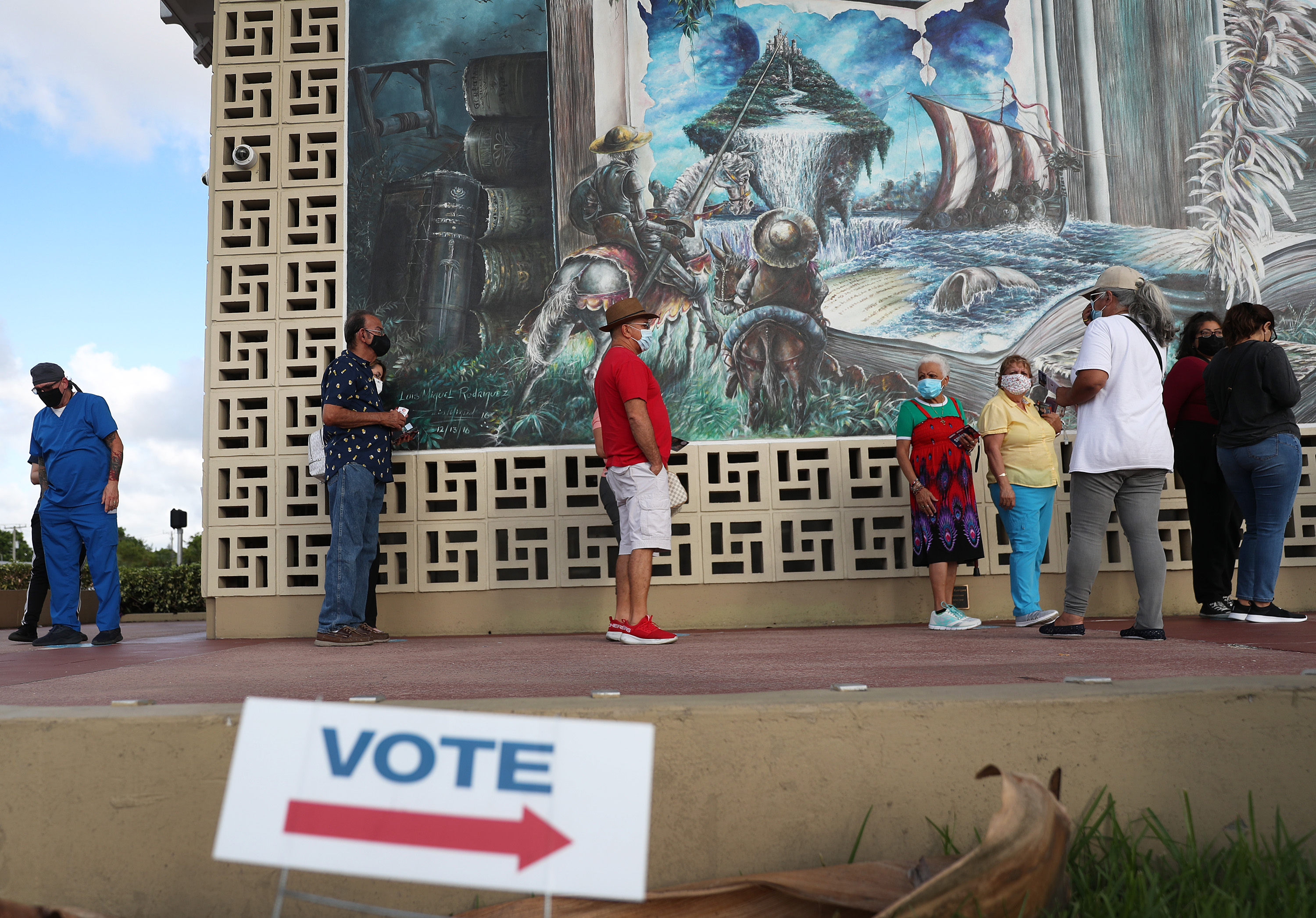The people speak
There's a reason tens of millions of Americans have already spent hours waiting to vote


A free daily email with the biggest news stories of the day – and the best features from TheWeek.com
You are now subscribed
Your newsletter sign-up was successful
This is the editor's letter in the current issue of The Week magazine.
The line from the polling place spilled out the door of the town hall, curled down the driveway onto the sidewalk out front, and extended nearly out of sight before making another turn into an athletic field. There it continued to grow. People sat in portable chairs or stood scrolling their phones or chatting with spouses or friends, patiently waiting, quietly radiating intent. No matter how long it took, they were going to vote, and vote early, and their votes were going to be counted. Two volunteers walked down the line with a few dozen boxes of pizza, handing out slices. "Someone donated them," one of the volunteers explained, squirting sanitizer into eager, outstretched hands. Inside, as people fed their paper ballots into the vote-counting machine, a veteran poll worker marveled at the mood. "Everyone seems so...happy," she said. After four years of listening, Americans were finally having their say.
So it went this week in thousands of polling places across the nation. In the midst of a rampaging pandemic, people put on their masks, packed some sanitizer, and exercised their central right as citizens — a right grown more precious because it's been threatened. Election turnouts in this country are usually disappointing, even embarrassing: Just about 55 percent of the voting-age population cast ballots in 2016, which left the U.S. ranked 26 out of 32 developed democracies for voter participation. But Americans have been given a vivid demonstration that voting matters, that who occupies the White House and Congress matters quite a lot, and that the freedoms and rights we take for granted aren't assured. Millions of people who couldn't spare a half hour to vote in 2016 waited half a day to cast ballots in 2020. In what has been a brutal and dispiriting year, the long lines of determined voters are an inspiring sight — proof of the enduring power of the democratic idea. It is your turn now. Speak. Vote.
The Week
Escape your echo chamber. Get the facts behind the news, plus analysis from multiple perspectives.

Sign up for The Week's Free Newsletters
From our morning news briefing to a weekly Good News Newsletter, get the best of The Week delivered directly to your inbox.
From our morning news briefing to a weekly Good News Newsletter, get the best of The Week delivered directly to your inbox.
A free daily email with the biggest news stories of the day – and the best features from TheWeek.com
William Falk is editor-in-chief of The Week, and has held that role since the magazine's first issue in 2001. He has previously been a reporter, columnist, and editor at the Gannett Westchester Newspapers and at Newsday, where he was part of two reporting teams that won Pulitzer Prizes.
-
 How the FCC’s ‘equal time’ rule works
How the FCC’s ‘equal time’ rule worksIn the Spotlight The law is at the heart of the Colbert-CBS conflict
-
 What is the endgame in the DHS shutdown?
What is the endgame in the DHS shutdown?Today’s Big Question Democrats want to rein in ICE’s immigration crackdown
-
 ‘Poor time management isn’t just an inconvenience’
‘Poor time management isn’t just an inconvenience’Instant Opinion Opinion, comment and editorials of the day
-
 Epstein files topple law CEO, roil UK government
Epstein files topple law CEO, roil UK governmentSpeed Read Peter Mandelson, Britain’s former ambassador to the US, is caught up in the scandal
-
 Iran and US prepare to meet after skirmishes
Iran and US prepare to meet after skirmishesSpeed Read The incident comes amid heightened tensions in the Middle East
-
 Israel retrieves final hostage’s body from Gaza
Israel retrieves final hostage’s body from GazaSpeed Read The 24-year-old police officer was killed during the initial Hamas attack
-
 China’s Xi targets top general in growing purge
China’s Xi targets top general in growing purgeSpeed Read Zhang Youxia is being investigated over ‘grave violations’ of the law
-
 Panama and Canada are negotiating over a crucial copper mine
Panama and Canada are negotiating over a crucial copper mineIn the Spotlight Panama is set to make a final decision on the mine this summer
-
 Why Greenland’s natural resources are nearly impossible to mine
Why Greenland’s natural resources are nearly impossible to mineThe Explainer The country’s natural landscape makes the task extremely difficult
-
 Iran cuts internet as protests escalate
Iran cuts internet as protests escalateSpeed Reada Government buildings across the country have been set on fire
-
 US nabs ‘shadow’ tanker claimed by Russia
US nabs ‘shadow’ tanker claimed by RussiaSpeed Read The ship was one of two vessels seized by the US military
